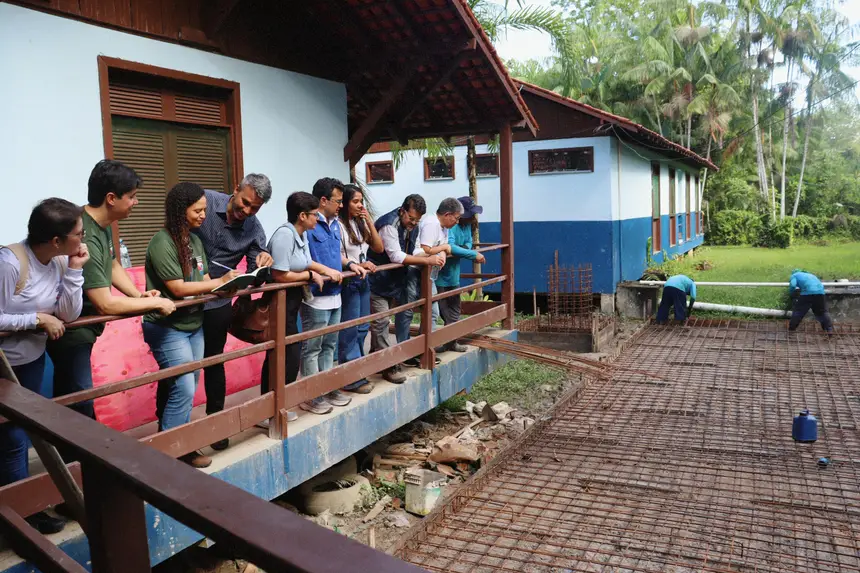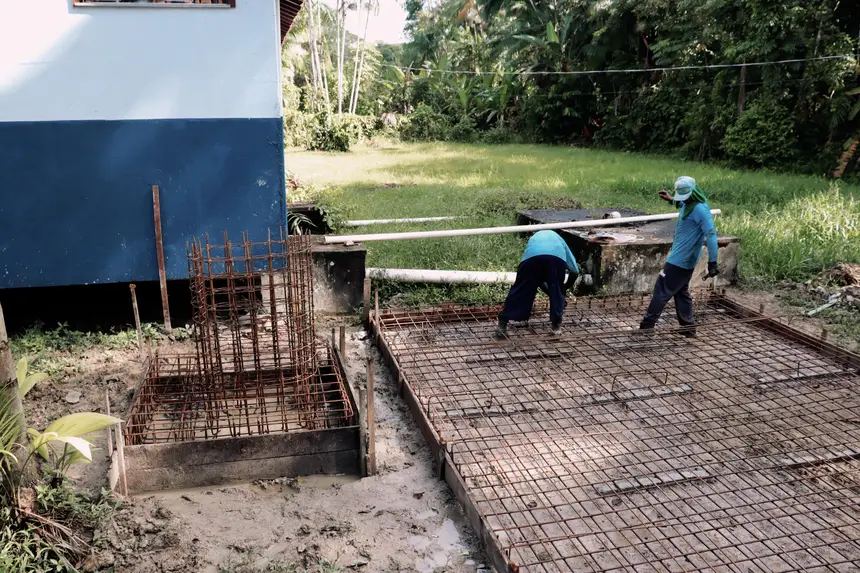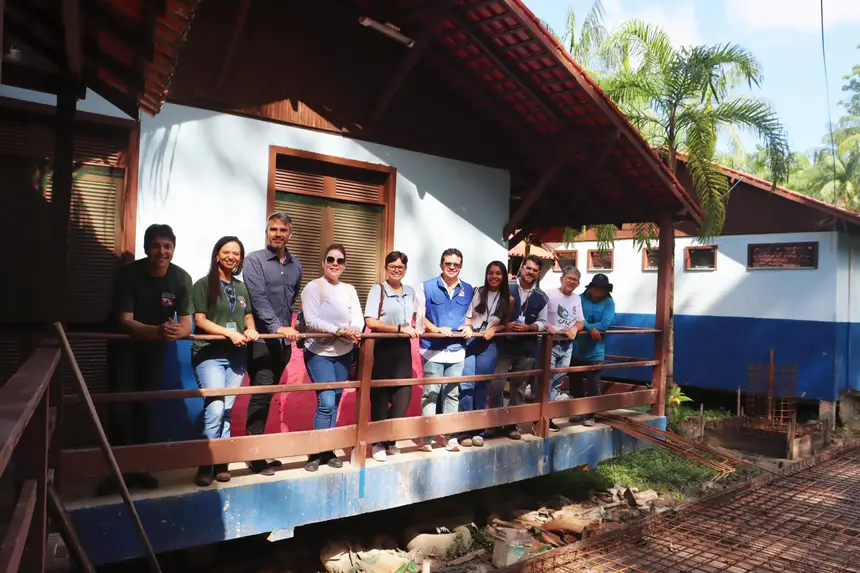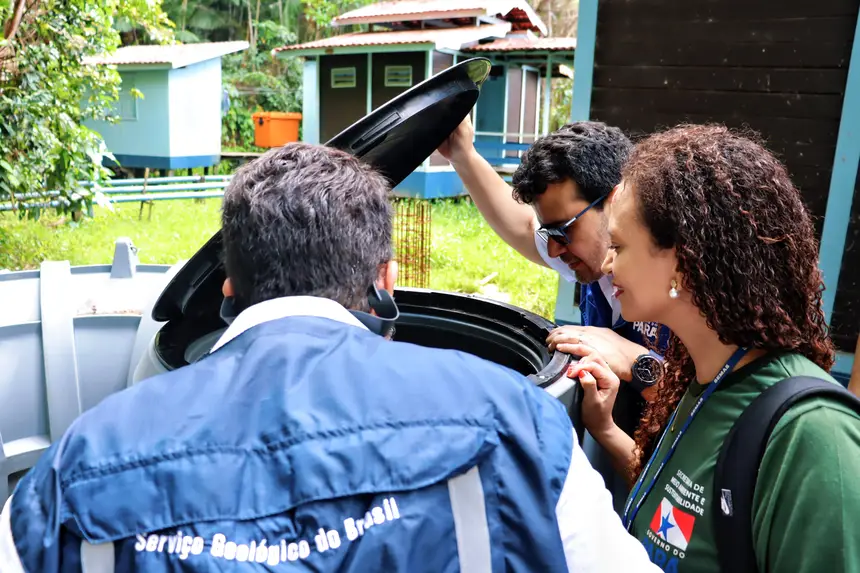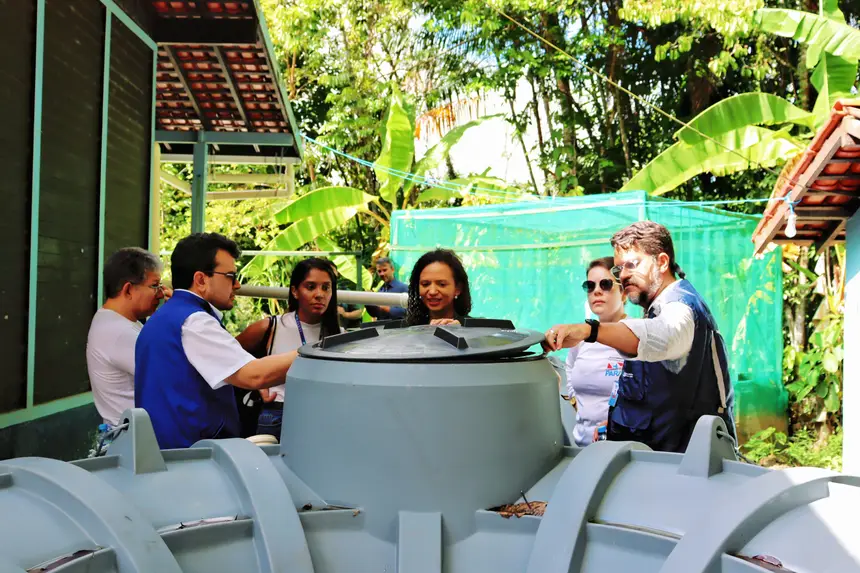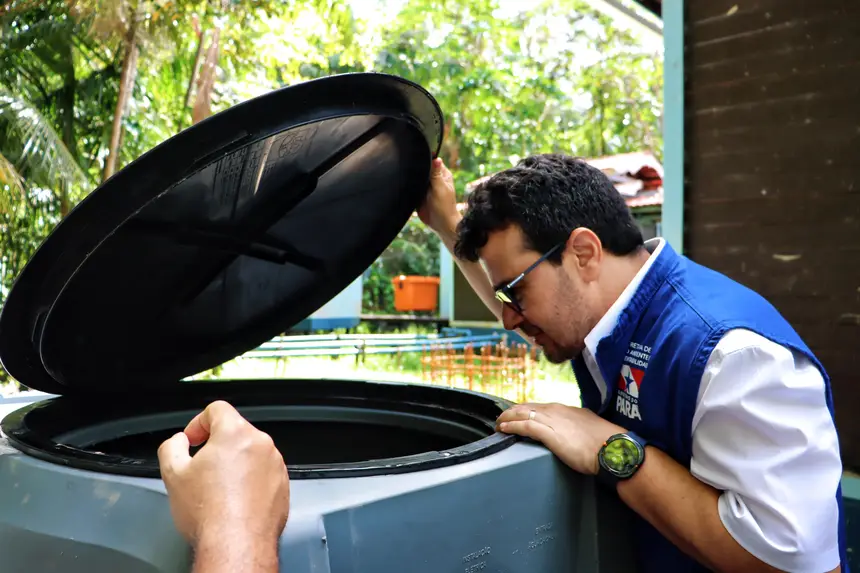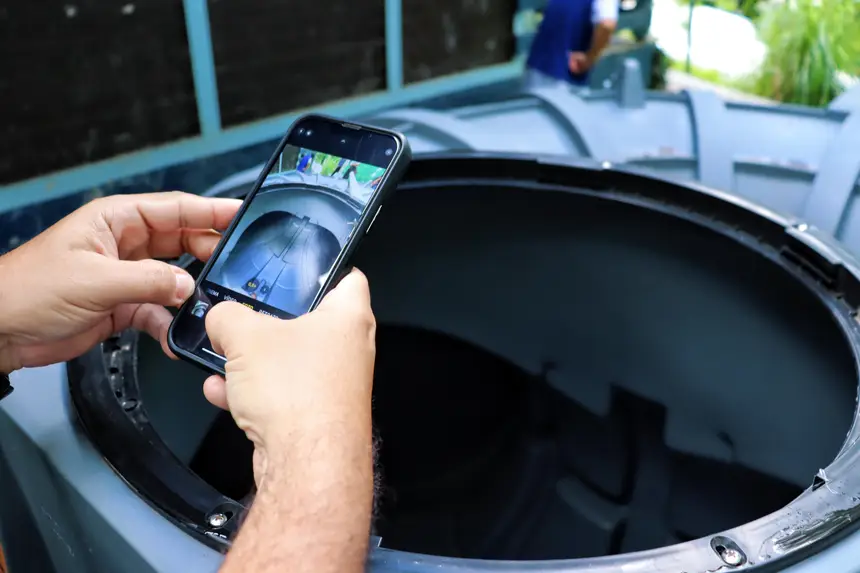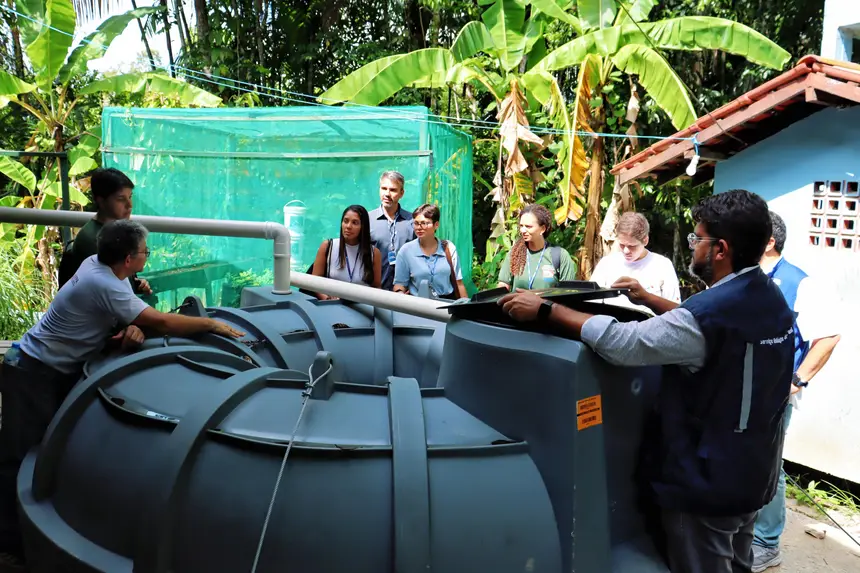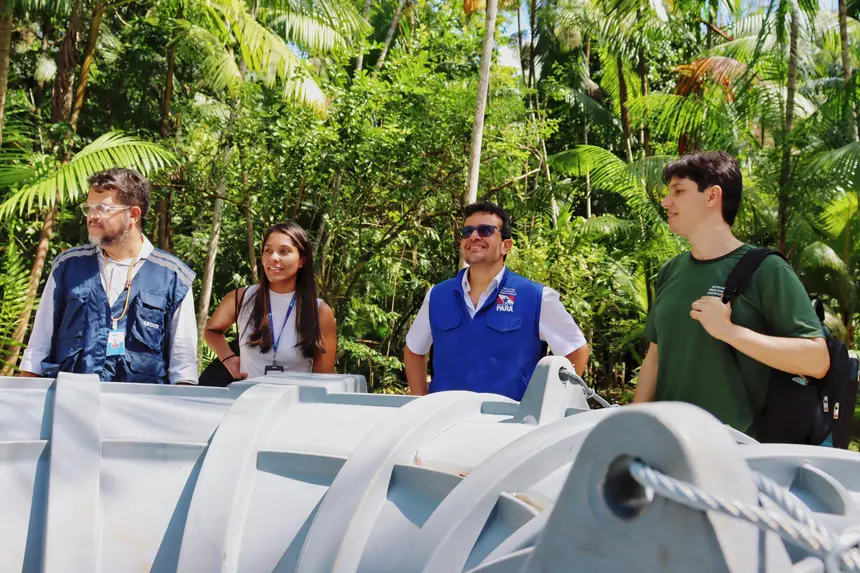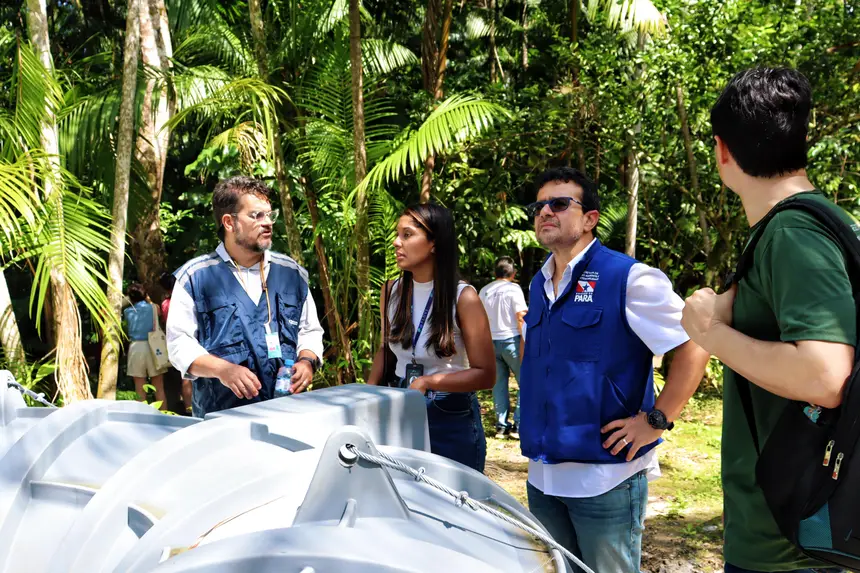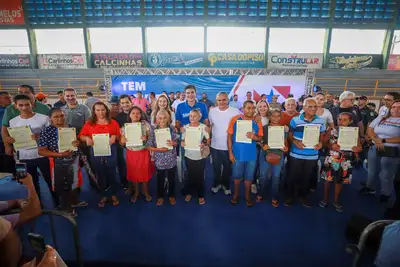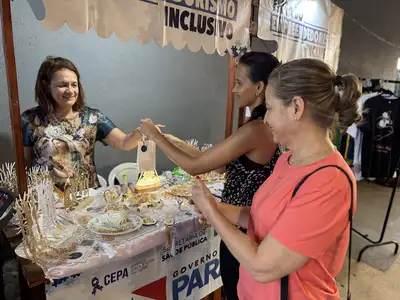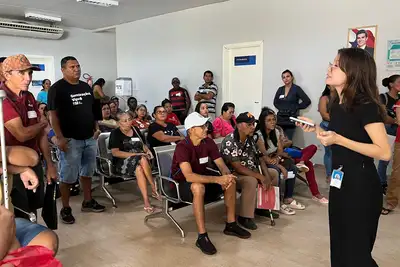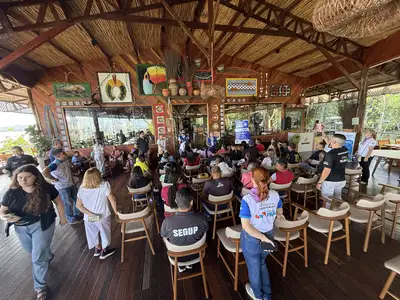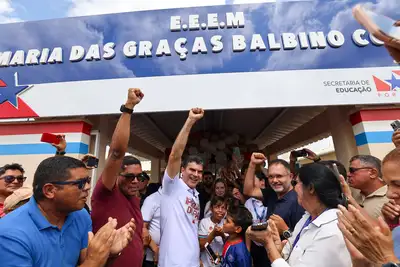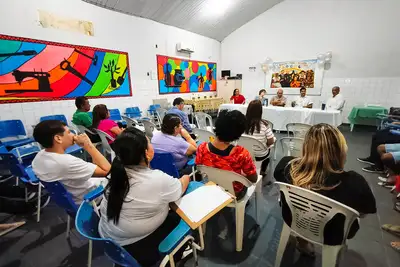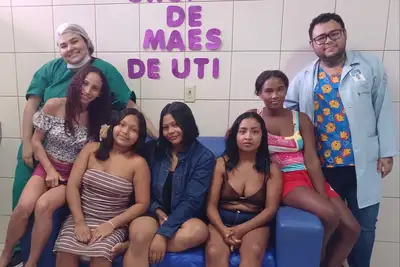Government partners to assess water quality of the Combu rainwater collection system
The Mineral Resources Research Company will monitor and provide technical reports on the collected rainwater, ensuring water security for residents
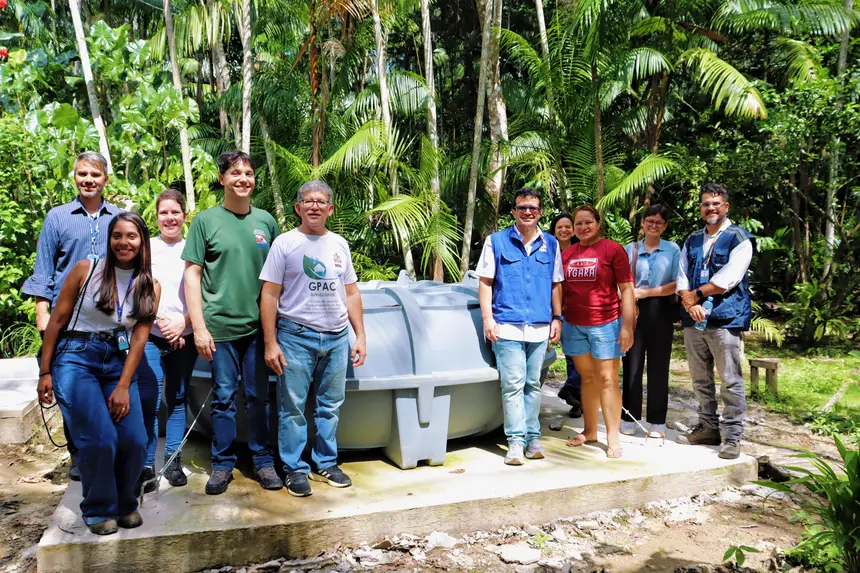
The Government of Pará, through the State Secretariat for the Environment, Climate and Sustainability (Semas), conducted a technical visit to Combu Island in Belém on Friday (11) to monitor the progress of the "Water for All" project. The initiative aims to ensure access to drinking water through the installation of rainwater collection and treatment systems for traditional communities in the region.
The installations are progressing steadily, with the bases ready and the systems already installed. The work is now focused on assembling the collection towers and finishing the gutters.
During the visit, Semas formalized the partnership with the Mineral Resources Research Company (CPRM), linked to the Ministry of Mines and Energy, which serves as the Geological Service of Brazil. Following the inauguration of the systems, water quality monitoring will be conducted monthly by the CPRM's Laboratory of Mineral Analyses (LAMIN), which will be responsible for issuing technical reports on the collected water, ensuring water security and transparency for the island's residents.
“Today, we brought CPRM to this visit, which is joining the project to monitor water quality through LAMIN. This is another partnership that adds value to the program. As soon as the system is inaugurated, expected in the second half of the year, we will conduct monthly monitoring and share this data with the entire community. With the Pluvi system and support from Fortress and UFPA, we are implementing a nature-based solution with guaranteed water quality,” highlighted the Deputy Secretary of Environmental Management and Regularity, Rodolpho Zahluth Bastos.
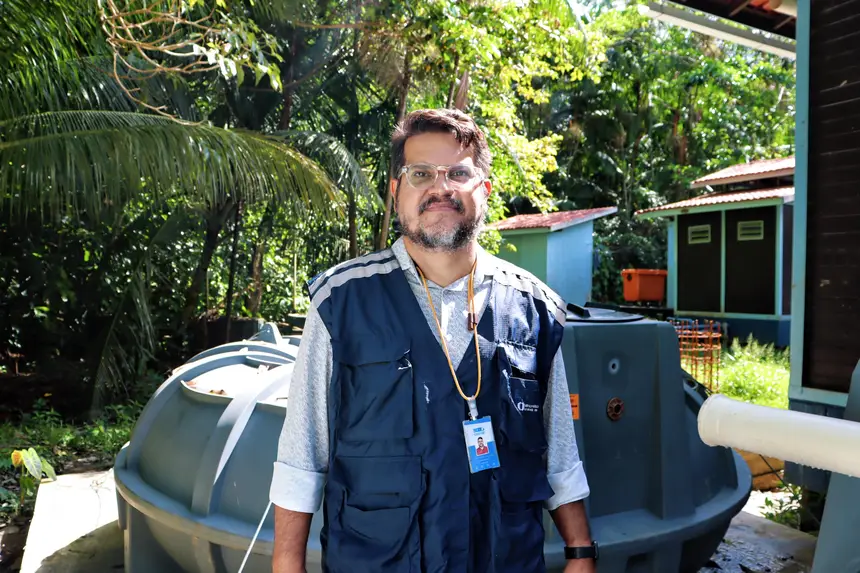
Opportunity - For Homero de Melo Júnior, regional superintendent of CPRM, the technical partnership with Semas represents a concrete opportunity to ensure quality water for traditional communities, with easy-to-operate and maintain technology. “This technical cooperation foresees the development of various products over five years. The 'Water for All' project is a highly relevant initiative, as it combines efficiency, sustainability, and autonomy for the local population. Water monitoring will be conducted by LAMIN, which ensures trust and safety for residents who will consume this water,” he said.
The project also encompasses collectives such as the headquarters of the Women Extractivists Association (AME) and Ygara Artesanal, which work with local handicrafts and receptive tourism based on ancestral knowledge of biodiversity management, such as açaí and andiroba. These initiatives aim to promote the local bioeconomy and support the sustainable development of the island.
The progress of the action was celebrated by residents of Combu Island, such as Iracema Nascimento, representative of Ygara Artesanal, who works with community-based tourism. “We were awarded the rainwater collection filter. Before it was just an expectation, but now it is becoming a reality. We are looking forward to the completion of the system, which represents a significant improvement in our quality of life,” she stated.
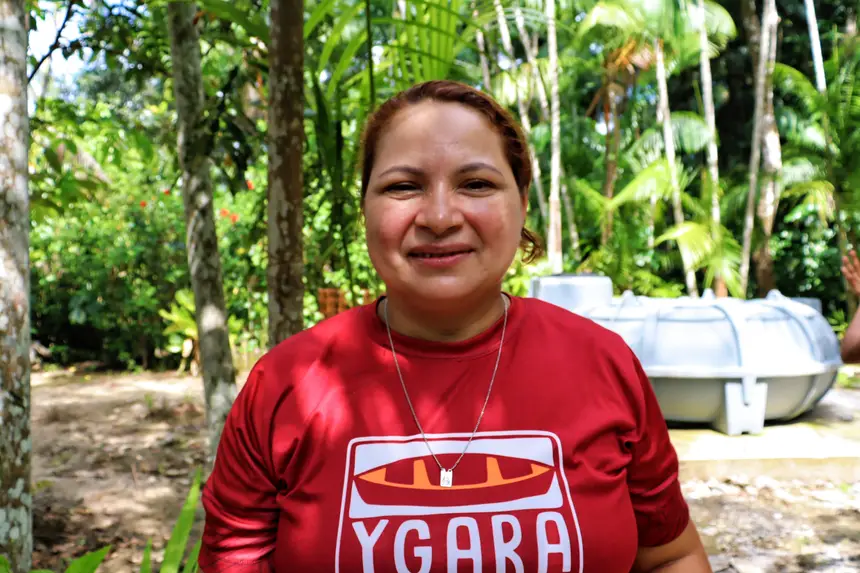
SDGs - The initiative aligns with the Sustainable Development Goals (SDGs) of the UN 2030 Agenda, especially with SDG 6 — Clean Water and Sanitation, which aims for universal and equitable access to safe water for all. The use of rainwater as a water resource, combined with the use of clean energy and community management, represents a nature-based solution with social technology. The initiative is aimed at reducing inequalities and promoting water justice in vulnerable territories. The implementation of water infrastructure strengthens security in access to water and boosts the sustainable development of the communities on Combu Island, with a direct impact on rural education, public health, and the strengthening of socio-biodiversity enterprises.
The implementation of the systems is the result of extensive institutional coordination. In addition to Semas, the initiative involves the City Hall of Belém, through the Municipal Secretariat for the Environment (Semma) and the Municipal Secretariat for Education (Semec); the Environmental Nucleus (NUMA) of the Federal University of Pará (UFPA); the company Pluvi Intelligent Environmental Solutions, responsible for rainwater collection technology; the company New Fortress, which provides financial support; and the Institute for Forest Development and Biodiversity of Pará (Ideflor-Bio), manager of the conservation unit where Combu Island is located.
Text: Mário Gouveia/ Ascom Semas


